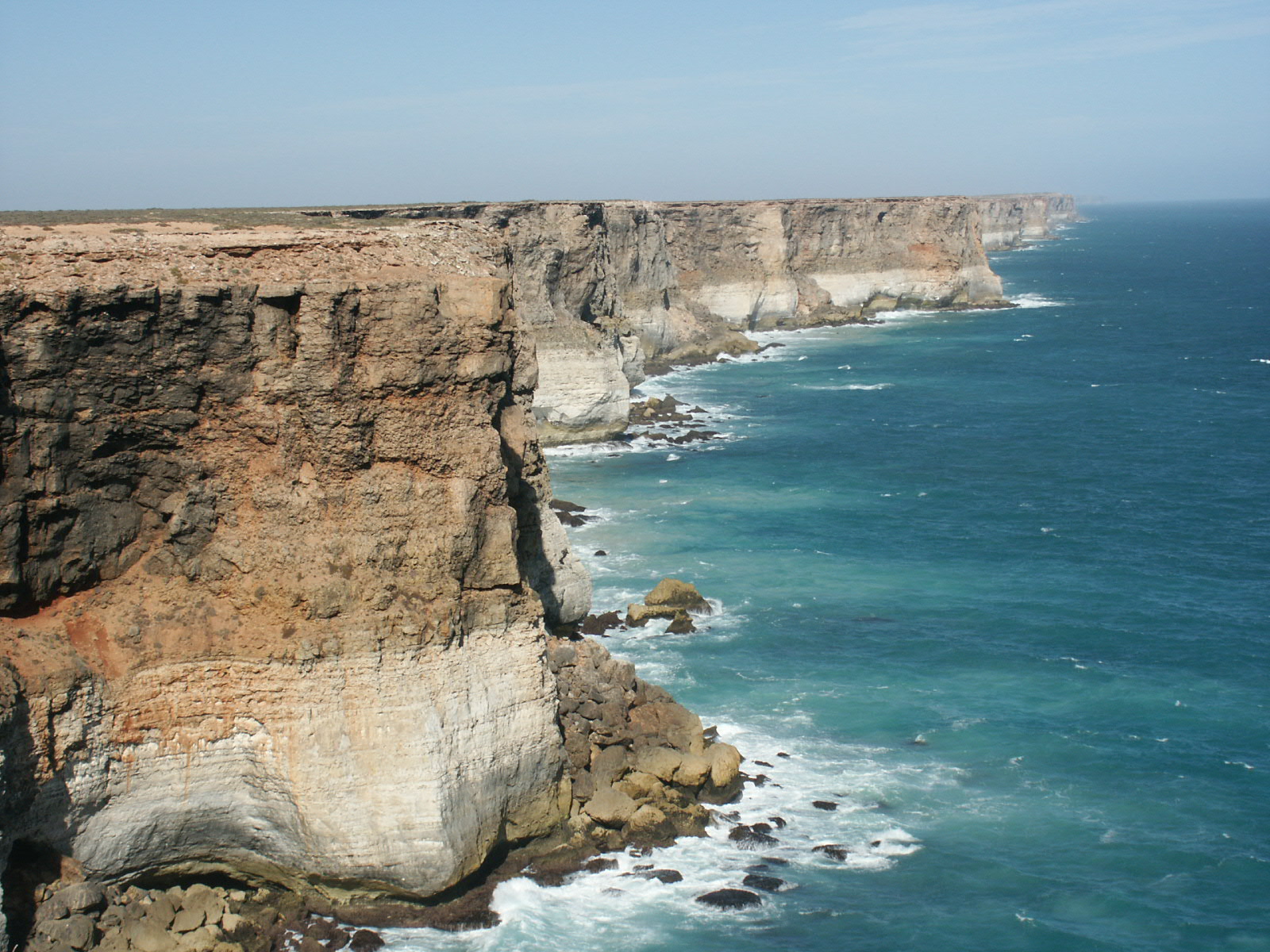Bight (geography) on:
[Wikipedia]
[Google]
[Amazon]
 In
In
 In
In geography
Geography (from Greek: , ''geographia''. Combination of Greek words ‘Geo’ (The Earth) and ‘Graphien’ (to describe), literally "earth description") is a field of science devoted to the study of the lands, features, inhabitants, a ...
, a bight is a concave bend or curvature in a coast
The coast, also known as the coastline or seashore, is defined as the area where land meets the ocean, or as a line that forms the boundary between the land and the coastline. The Earth has around of coastline. Coasts are important zones in n ...
line, river
A river is a natural flowing watercourse, usually freshwater
Fresh water or freshwater is any naturally occurring liquid or frozen water containing low concentrations of dissolved salts and other total dissolved solids. Although the ...
or other geographical feature (such as a cliff), or it may refer to a very open bay
A bay is a recessed, coastal body of water that directly connects to a larger main body of water, such as an ocean, a lake, or another bay. A large bay is usually called a Gulf (geography), gulf, sea, sound (geography), sound, or bight (geogra ...
formed by such a feature. Such bays are typically broad, open, shallow and only slightly recessed.
Description
Bights are distinguished from sounds, in that sounds are much deeper. Traditionally, explorers defined a bight as a bay that could be sailed out of on a single tack in a square-rigged sailing vessel, regardless of the direction of the wind (typically meaning the apex of the bight is less than 25 degrees from the edges). The term is derived from Old English ''byht'' (“bend, angle, corner; bay, bight”) with German ''Bucht'' and Danish ''bugt'' ascognate
In historical linguistics, cognates or lexical cognates are sets of words in different languages that have been inherited in direct descent from an etymological ancestor in a common parent language. Because language change can have radical e ...
s, both meaning "bay
A bay is a recessed, coastal body of water that directly connects to a larger main body of water, such as an ocean, a lake, or another bay. A large bay is usually called a Gulf (geography), gulf, sea, sound (geography), sound, or bight (geogra ...
". Bight is not etymologically
Etymology () The New Oxford Dictionary of English (1998) – p. 633 "Etymology /ˌɛtɪˈmɒlədʒi/ the study of the class in words and the way their meanings have changed throughout time". is the study of the history of the form of words ...
related to " bite" (Old English ''bītan'').
Notable examples
* Bay of Campeche * Bay of Plenty * Bight of Benin * Bight of Biafra or Bight of Bonny * Canterbury Bight *German Bight
The German Bight (german: Deutsche Bucht; da, tyske bugt; nl, Duitse bocht; fry, Dútske bocht; ; sometimes also the German Bay) is the southeastern bight of the North Sea bounded by the Netherlands and Germany to the south, and Denmark and ...
or Heligoland Bight
The Heligoland Bight, also known as Helgoland Bight, (german: Helgoländer Bucht) is a bay which forms the southern part of the German Bight, itself a bay of the North Sea, located at the mouth of the Elbe river. The Heligoland Bight extends ...
* Great Australian Bight
* McKenzie Bight
* Mecklenburg Bight
* Mid-Atlantic Bight
* New York Bight
* North Taranaki Bight
* Robson Bight
* Santa Monica Bay
* South Taranaki Bight
* Southern Bight
* Southern California Bight
* Trinity Bight, Newfoundland and Labrador
References
{{coastal geography Bodies of water Coastal and oceanic landforms id:teluk